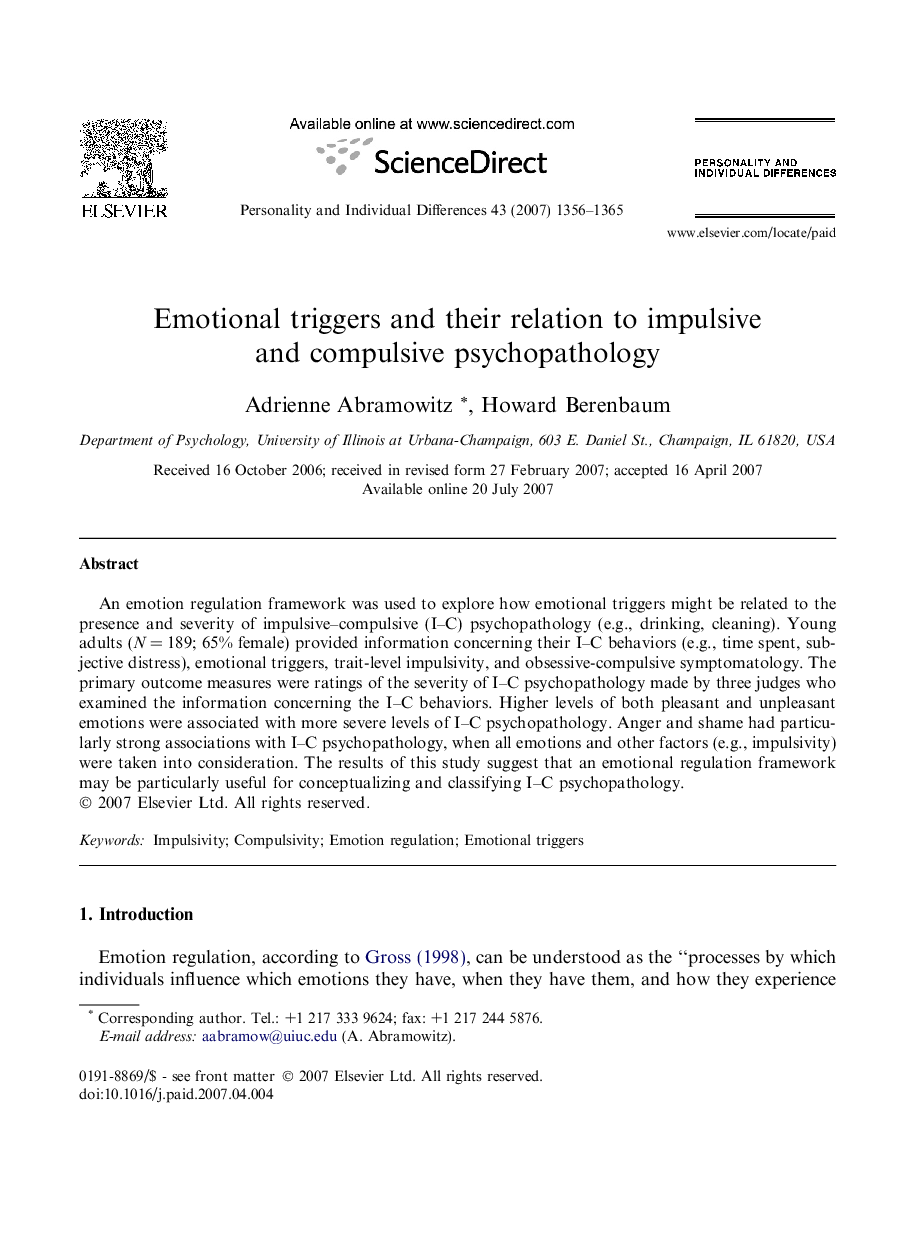| Article ID | Journal | Published Year | Pages | File Type |
|---|---|---|---|---|
| 893027 | Personality and Individual Differences | 2007 | 10 Pages |
An emotion regulation framework was used to explore how emotional triggers might be related to the presence and severity of impulsive–compulsive (I–C) psychopathology (e.g., drinking, cleaning). Young adults (N = 189; 65% female) provided information concerning their I–C behaviors (e.g., time spent, subjective distress), emotional triggers, trait-level impulsivity, and obsessive-compulsive symptomatology. The primary outcome measures were ratings of the severity of I–C psychopathology made by three judges who examined the information concerning the I–C behaviors. Higher levels of both pleasant and unpleasant emotions were associated with more severe levels of I–C psychopathology. Anger and shame had particularly strong associations with I–C psychopathology, when all emotions and other factors (e.g., impulsivity) were taken into consideration. The results of this study suggest that an emotional regulation framework may be particularly useful for conceptualizing and classifying I–C psychopathology.
